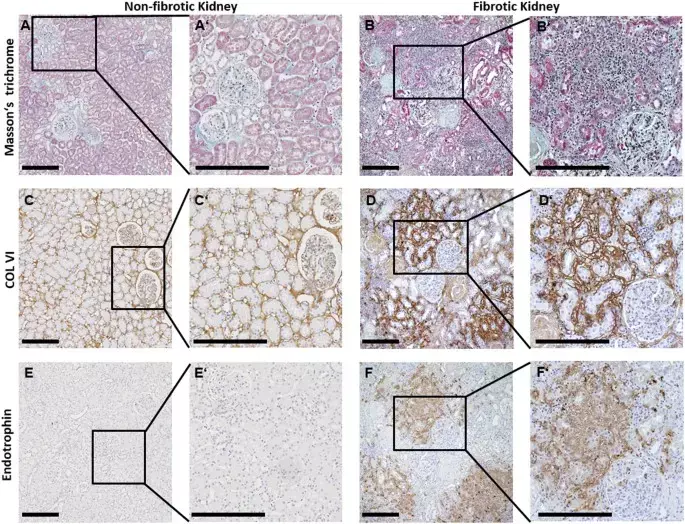- Home
- Medical news & Guidelines
- Anesthesiology
- Cardiology and CTVS
- Critical Care
- Dentistry
- Dermatology
- Diabetes and Endocrinology
- ENT
- Gastroenterology
- Medicine
- Nephrology
- Neurology
- Obstretics-Gynaecology
- Oncology
- Ophthalmology
- Orthopaedics
- Pediatrics-Neonatology
- Psychiatry
- Pulmonology
- Radiology
- Surgery
- Urology
- Laboratory Medicine
- Diet
- Nursing
- Paramedical
- Physiotherapy
- Health news
- Fact Check
- Bone Health Fact Check
- Brain Health Fact Check
- Cancer Related Fact Check
- Child Care Fact Check
- Dental and oral health fact check
- Diabetes and metabolic health fact check
- Diet and Nutrition Fact Check
- Eye and ENT Care Fact Check
- Fitness fact check
- Gut health fact check
- Heart health fact check
- Kidney health fact check
- Medical education fact check
- Men's health fact check
- Respiratory fact check
- Skin and hair care fact check
- Vaccine and Immunization fact check
- Women's health fact check
- AYUSH
- State News
- Andaman and Nicobar Islands
- Andhra Pradesh
- Arunachal Pradesh
- Assam
- Bihar
- Chandigarh
- Chattisgarh
- Dadra and Nagar Haveli
- Daman and Diu
- Delhi
- Goa
- Gujarat
- Haryana
- Himachal Pradesh
- Jammu & Kashmir
- Jharkhand
- Karnataka
- Kerala
- Ladakh
- Lakshadweep
- Madhya Pradesh
- Maharashtra
- Manipur
- Meghalaya
- Mizoram
- Nagaland
- Odisha
- Puducherry
- Punjab
- Rajasthan
- Sikkim
- Tamil Nadu
- Telangana
- Tripura
- Uttar Pradesh
- Uttrakhand
- West Bengal
- Medical Education
- Industry
Endotrophin levels may predicting CKD events diabetes patients, claims study

Endotrophin levels may predicting CKD events diabetes patients, claims study published in the Nephrology Dialysis Transplantation.
Diabetic kidney disease (DKD) is driven by a set of pathophysiological processes, including fibrosis. Endotrophin (ETP), a pro-fibrotic fragment generated during collagen type VI formation, has previously been shown to be a biomarker of DKD progression. The aim of this study was to investigate, for the first time, circulating ETP as a risk marker for kidney outcomes in persons with type 2 diabetes (T2D) being taken care of at the primary level of healthcare. Levels of ETP were measured using the nordicPRO-C6TM ELISA in plasma at baseline from 3226 persons with T2D enrolled in the Prospective Cohort Study in Patients with Type 2 Diabetes Mellitus for Validation of Biomarkers (PROVALID). Outcomes included a composite kidney endpoint defined as a sustained 40% decline in estimated glomerular filtration rate (eGFR) < an eGFR of 60 ml/min/173 m2, sustained 30% increase in albuminuria including a transition in albuminuria stage, or kidney failure with replacement therapy or kidney death. A decline in eGFR and an increase in albuminuria were considered sustained if they persisted over at least two consecutive measurements. Crude and adjusted Cox proportional hazards regression models were applied to investigate the potential of ETP as a risk marker of the kidney endpoint. Levels of ETP were log-transformed before analysis.
The Kaplan–Meier estimator was used to compare the risks of experiencing the kidney endpoint according to ETP levels split by the median in persons with baseline eGFR > 90 ml/min/1.73 m2 (n = 976). Results: The cohort consisted of 57% males; median age was 64 (58-70) years, and mean eGFR was 79 ± 24 ml/min/1.73 m2. Median follow-up was 3.9 years. Higher levels of ETP were associated with a higher risk of developing the kidney endpoint, with a hazard ratio (HR) of 1.63 (p = 0.0012; n = 293/3226). After adjustment for the refined variables: age, diabetes duration, HbA1c, atherosclerotic cardiovascular disease, blood pressure, duration of hypertension, BMI, LDL-cholesterol, HDL-cholesterol, and eGFR, the HR was 1.55 (p = 0.012). In persons with an eGFR > 90 ml/min/1.73 m2, higher ETP was also associated with an increased risk of developing the kidney endpoint (p = 0.03; n = 69/976). Plasma ETP was an independent risk marker for kidney outcomes in persons with T2D with early kidney disease. Higher levels of plasma ETP were associated with a significantly increased risk of developing the kidney endpoint in persons with eGFR > 90 ml/min/1.73 m2. These findings demonstrate that biomarkers of fibrosis, such as ETP, may serve as early markers for kidney disease progression or kidney failure in persons with T2D and apparently normal kidney function.
Reference:
Alexandra Louise Møller, Stefanie Thöni, Felix Keller, Samir Sharifli, Federica Genovese, Morten Asser Karsdal, Gert Mayer, #755 Endotrophin as an early marker of kidney outcomes in persons with type 2 diabetes: findings from the PROVALID study, Nephrology Dialysis Transplantation, Volume 39, Issue Supplement_1, May 2024, gfae069–0528–755, https://doi.org/10.1093/ndt/gfae069.528
Dr Kartikeya Kohli is an Internal Medicine Consultant at Sitaram Bhartia Hospital in Delhi with super speciality training in Nephrology. He has worked with various eminent hospitals like Indraprastha Apollo Hospital, Sir Gangaram Hospital. He holds an MBBS from Kasturba Medical College Manipal, DNB Internal Medicine, Post Graduate Diploma in Clinical Research and Business Development, Fellow DNB Nephrology, MRCP and ECFMG Certification. He has been closely associated with India Medical Association South Delhi Branch and Delhi Medical Association and has been organising continuing medical education programs on their behalf from time to time. Further he has been contributing medical articles for their newsletters as well. He is also associated with electronic media and TV for conduction and presentation of health programs. He has been associated with Medical Dialogues for last 3 years and contributing articles on regular basis.


